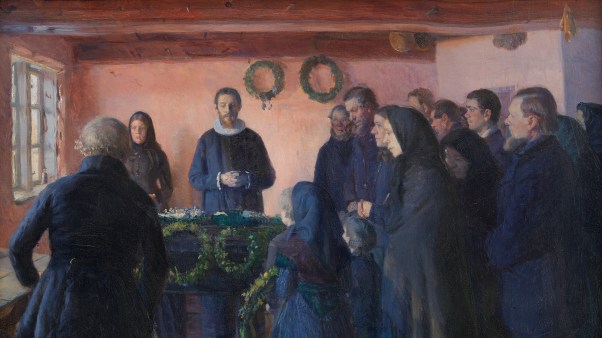A man once appeared at my office door asking for some bullet points on Christianity to help make sense of the dinner conversations he was having with his wife, a recent convert. He made it clear he was very busy, very successful, and didn’t really have time to study her beliefsHTBjust bullet points, now, please.
It would have been easy to hand him a book or pamphlet. That can be good. But instead, I said, “I can see you are a very busy, successful person, so I don’t think this is a good idea.”
“Why?” he asked, frustrated.
Does your church try to satisfy people’s needs or to intensify their hunger? Service customers or fan desperation for God?
“Because,” I said, “if I were to give you the bullet points, and you were to really understand them, they have a way of working into a person’s life so significantly that your life could really get messed up. You would have to rethink the meaning of success, of time, of family, of everything, really. I don’t think you want to do that, do you?”
It was an effort to raise his thirst, not to give him answers. In his case, it worked.
The pervasive models of ministry in North America are those whose popularity comes in part from their extraordinary ability to meet needs. Remarkable programs service every nuance of middle class American life. From megachurches to country parishes, as needs present themselves, the church seeks to provide answers.
It’s true, of course, that at a profound level, God meets our needs: for redemption and re-creation. We are called to an incarnational ministry that literally embodies the love of God. We worship a God who came among us as one who serves and who calls us to imitate him. What, then, could be more obvious than that churches do everything in their power to meet needs?
It might be this straightforward, except for one notable thing: Jesus did not seem especially or consistently inclined to meet people’s needs. At least not the way they expected. Yes, he met needs. It’s just that meeting needs was not what Jesus was primarily about. Nor was that what he wanted people to be drawn to. “Seek first the Kingdom of God and all these things shall be added unto you” is Jesus’ approach.
Jesus’ ministry draws the desperate, not the satisfied. And once drawn, Jesus does not necessarily give them what they think they need. “My son, your sins are forgiven” was not what the paralytic had in mind as his pallet was being lowered. When Jesus said to the woman at the well, “You are right in saying, ‘I have no husband’; for you have had five husbands and the one you have now is not your husband,” he was not satisfying her in the least.
When Jesus waited two days beyond the news of Lazarus’s severe illness before going to Bethany, arriving after Lazarus had been in the tomb four days, Martha made it clear that he had not met their needs: “Lord, if you had been here, my brother would not have died.”
Our Lord says, “Seek first the Kingdom of God,” while the church busily attends to “all these things.”
In a consumer-culture like ours, the church easily gets lost in its pre-occupation with things, which it then calls evidence of the Kingdom. But Jesus says the Kingdom is for those who hunger and thirst for righteousness. Finding God with desperate people is an entirely different experience than among the satisfied.
In the Beatitudes, Jesus speaks of the blessedness of the poor and the meek who know the grace of desperation. One of the greatest dangers of our need-satisfying ministries is that we mute the desperation that is the very pretext for the water of life. What’s more, the irony that shows up throughout the Bible is that when needs are met and the people are satisfied, they forget God. The Lord’s daily provision of manna kept Israel dependent. It’s not what the people said they needed. Even the addition of quail didn’t stop their grousing.
God wasn’t trying to meet their needs. He was making them his people. That called for a different diet and an alternative strategy.
Which are we trying to do? Satisfy people’s needs or intensify their hunger?
Mark Labberton is pastor of First Presbyterian Church of Berkeley, California.
Copyright © 2006 by the author or Christianity Today/Leadership Journal. Click here for reprint information on Leadership Journal.








